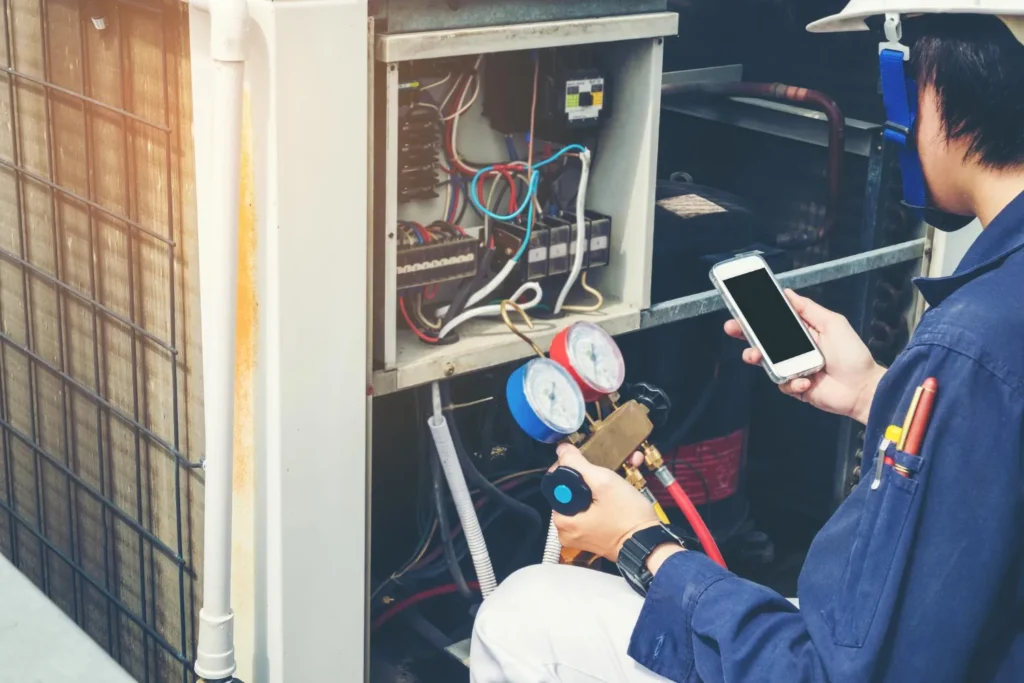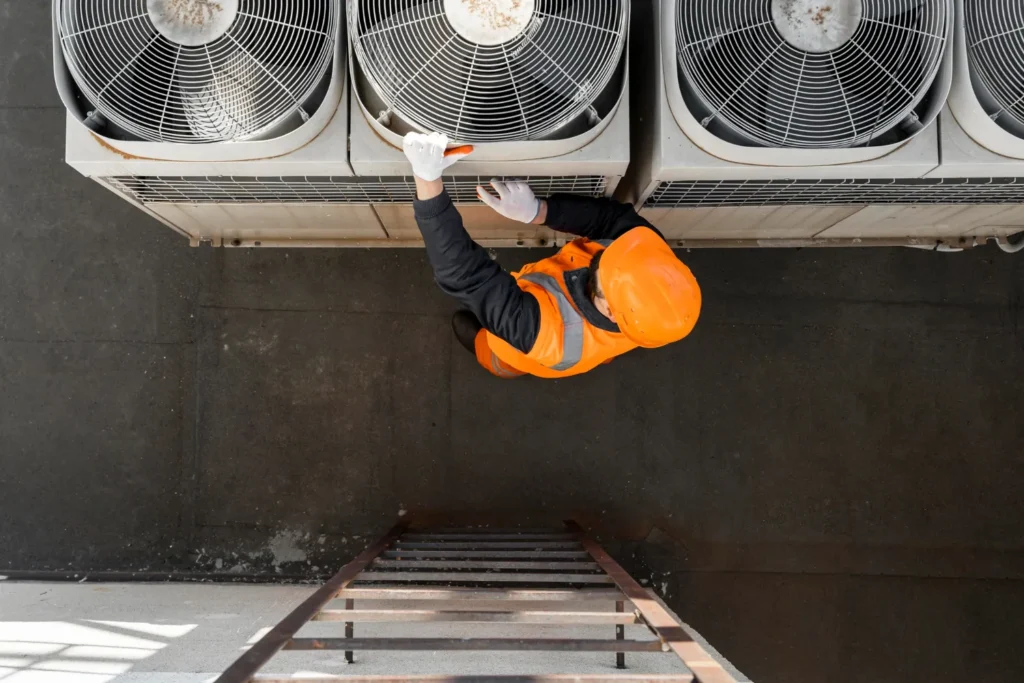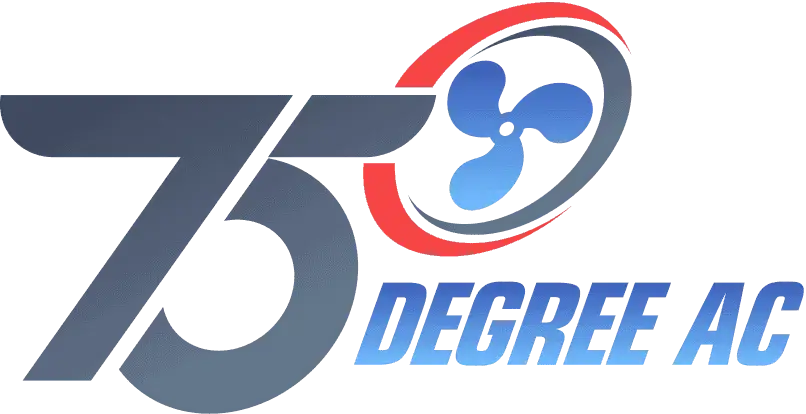In the sweltering heat of Sugar Land, a functioning air conditioner is not just a luxury but a necessity. Despite their crucial role in our daily comfort, air conditioners can encounter various problems that impede their efficiency and performance. Understanding these issues is critical to maintaining an optimal home environment and avoiding the discomfort of a malfunctioning unit. This article delves into the top 10 most common air conditioner problems you might face, offering practical advice and solutions to keep your system running smoothly. Let’s ensure your living space remains a calm sanctuary against the heat.
Top 10 Most Common Air Conditioner Problems You Might Face
As a homeowner in Sugar Land, where temperatures often soar, your air conditioner is your best ally in maintaining comfort. Unfortunately, even the most reliable units can succumb to issues. Here, we outline the top 10 most common air conditioner problems you might encounter, providing insights on identifying and addressing them.

Refrigerant Leak
A refrigerant leak is one of the most severe issues affecting your air conditioning system. Refrigerant, the lifeblood of your AC, is crucial for cooling your home. When there is a leak, the capacity of your air conditioner to cool the air effectively diminishes, leading to a system that operates inefficiently and increases your electricity bills. Signs of a refrigerant leak include:
- Ice on the evaporator coils.
- Hissing noises from the unit.
- Reduced cooling capacity.
Handling refrigerant leaks requires professional intervention to properly seal the leak and recharge the system, ensuring it meets the manufacturer’s specifications. It’s not just about comfort—ensuring your system doesn’t leak refrigerant is also essential for environmental protection.
A/C Not Turning On
It can be alarming when your air conditioner fails to turn on, especially during a hot day. This problem often stems from issues that might be simple to fix. First, ensure the circuit breaker has not tripped, and your thermostat is set correctly. Sometimes, a simple reset of the breaker or correcting the thermostat settings can resolve the issue. If these steps don’t work, the problem could be more serious, such as faulty wiring or a non-responsive thermostat, requiring professional attention. Regular maintenance checks can preemptively solve these issues before they lead to a complete system shutdown.
Faulty Thermostat
The thermostat acts as the command center of your air conditioning system, dictating when, how, and for how long your system runs. A faulty thermostat can lead to no cooling, intermittent cooling, or erratic behavior of the AC unit. Common signs of a problematic thermostat include the AC not reaching the set temperature or the thermostat being unresponsive. Upgrading to a smart thermostat can provide more precise control over your home’s temperature and even learn your schedule to optimize cooling and energy usage. It’s not just a fix; it’s an upgrade for a more efficient home cooling system.
Air Conditioner Not Blowing Cold Air
When your air conditioner is running but not lowering the temperature in your home, it could indicate several issues. One of the most common reasons is a dirty or clogged air filter, which restricts airflow, reducing the system’s efficiency and ability to cool the air. Additionally, it could be a sign that your air conditioner’s compressor is failing. Other potential causes include:
- A malfunctioning thermostat.
- Inadequate air flow through your ductwork.
- Issues with the refrigerant levels.
Regularly replacing or cleaning air filters and scheduling routine maintenance checks can prevent this problem and ensure your air conditioner operates at peak efficiency.
Compressor
The compressor is essential in the air conditioning process and is responsible for circulating refrigerant necessary for heat exchange through the unit’s coils. A malfunctioning compressor can decrease cooling capacity or cause the air conditioner to stop cooling altogether. Symptoms of compressor problems (Common Air Conditioner Problems) may include:
- The air conditioner cycles on and off frequently (short cycling).
- Strange noises.
- The unit vibrates unusually while operating.
Compressor issues are often complex and can be caused by dirty coils, insufficient refrigerant, or excessive heat exposure. Due to the complexity and importance of this component, compressor problems typically require professional assessment and repair.
Drainage
Proper drainage is crucial for air conditioning, especially in high humidity areas like Sugar Land. The condensate drain that removes water from the air conditioner can become clogged with algae, dirt, or debris, leading to water backing up and potentially causing damage to the system or water leaks in your home. Regularly checking and cleaning the drainage line can prevent this issue. For systems in areas with high humidity, installing a condensate pump can also help ensure that water is effectively removed from the air conditioner, thereby preventing leakage and maintaining optimal functionality.
Frozen Evaporator Coil
A frozen evaporator coil can cause your air conditioner to become ineffective or stop working altogether. This issue often arises when there is insufficient air flow across the coil, typically due to a dirty air filter or blocked air ducts. Low refrigerant levels can also lead to the evaporator coil freezing as the pressure within the system drops, causing the temperature to fall below normal. To prevent this problem, ensure that air filters are changed regularly and air ducts are not obstructed. If freezing occurs, the system should be turned off to allow the coil to thaw, and a professional should be consulted to correct the underlying issue.
AC Running Constantly
An air conditioner that runs without cycling off can indicate several issues, often pointing to inefficiency in the system. This could be due to an undersized air conditioner for your home, which runs continuously to meet the cooling demand, or it could stem from a malfunctioning thermostat not correctly gauging the indoor temperature. Other factors include old and leaking windows or poor insulation, which allow cool air to escape. Constant operation stresses your system and leads to excessive energy bills. Ensuring that your AC unit is appropriately sized for your space, checking for drafts or insulation issues, and ensuring your thermostat is correctly calibrated are vital steps to resolving this issue. Regular energy audits can also help identify and rectify inefficiencies.
Low Refrigerant
Refrigerant is the substance that your AC uses to remove heat and humidity from the air in your home or office. Low refrigerant levels can significantly decrease your air conditioner’s cooling ability, leading to a continuous system without effectively cooling the space. Symptoms of low refrigerant include inadequate cooling, longer operation times, and the buildup of ice on the compressor. If you suspect your system is low on refrigerant, addressing the issue promptly is crucial, as it could indicate a leak. Due to the complexity and environmental concerns associated with handling refrigerants, this repair should always be conducted by a certified professional who can also check for and repair leaks.
Weird Noises Appearing Suddenly
Sudden unusual noises from your air conditioner are not just a nuisance; they often signify underlying mechanical issues. Familiar sounds include grinding (indicative of motor bearing issues), hissing (usually pointing to a refrigerant leak), or banging (suggesting a loose or broken component). These noises should be addressed, as they can escalate into more severe problems or lead to system failure if addressed quickly. An immediate inspection by a professional can diagnose the cause of the noise and fix it, ensuring that minor issues don’t turn into more significant, more costly repairs.
These common air conditioner problems can disrupt the comfort of your home and potentially lead to more significant issues if left unaddressed. Understanding what these signs mean and responding to them quickly helps keep your air conditioning system running efficiently, extends its lifespan, and reduces the likelihood of inconvenient or expensive breakdowns.
Get Common Air Conditioner Problems Solution With 75 Degree AC

When it comes to maintaining a comfortable home environment in the intense Sugar Land heat, having a reliable air conditioning service that you can trust is crucial. At 75 Degree AC, we specialize in diagnosing, repairing, and maintaining all air conditioning systems, ensuring they operate efficiently and effectively. Our team of skilled technicians is equipped to handle every common air conditioner problem, from refrigerant leaks to weird noises and everything in between.
Don’t let common air conditioner problems disrupt your comfort or your life. Contact 75 Degree AC today at (713) 598-2737 or 75degreeacservices@gmail.com. Let us help you maintain a relaxed, comfortable, and efficient home with our reliable and expert services. Trust us to handle your air conditioning needs and experience the peace of mind of knowing your system is in good hands.
FAQs About Common AC Problems
Navigating the complexities of common air conditioner problems can be daunting. To help you better understand some of the common challenges and considerations associated with air conditioning units, here are answers to frequently asked questions:
What is the most common issue with AC?
The most common issue with air conditioners is insufficient cooling, which can be caused by various factors such as dirty air filters, low refrigerant levels, or issues with the thermostat. Regular maintenance prevents these issues and ensures your system operates efficiently.
What is the most common part of failure on an AC unit?
The compressor is often considered the most common part that fails in an AC unit. It is vital for circulating refrigerant and facilitating the heat exchange process, and its failure can lead to significant loss of cooling power or complete system breakdown. Compressor failures are typically due to poor maintenance, the age of the unit, or continuous heavy usage.
Why is my AC working but not cooling?
If your AC is running but not cooling, it could be for several reasons. Common causes include a clogged air filter, low refrigerant levels, or a malfunctioning compressor. Dirty or blocked evaporator or condenser coils can also impede the cooling process. A thorough diagnostic from a professional can pinpoint the exact issue.
What is the main problem of an air conditioner?
The main problem of an air conditioner often relates to poor maintenance. Lack of regular service can lead to a buildup of dirt and debris, impacting the unit’s efficiency and effectiveness. This neglect can cause issues, from minor common air conditioner problems like reduced cooling capacity to significant concerns like complete system failure.
What are the most common air conditioner problems that require professional AC repair services?
Professional AC repair services are most commonly required for issues such as refrigerant leaks, electrical component failures, and mechanical wear and tear of components like fans and compressors. These problems often require specialized skills and tools for safe and effective repairs.
What kind of problems can an AC give me?
An air conditioner can present a wide range of problems, including, but not limited to, fluctuating temperatures, unusual noises, high humidity levels inside the home, water leaks, and emitting unpleasant odors. Each of these issues could indicate different underlying problems requiring varied solutions.
